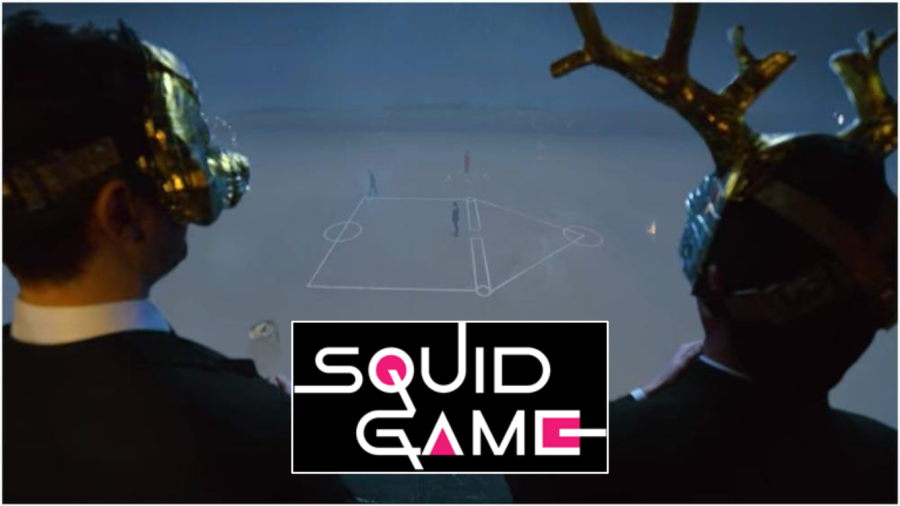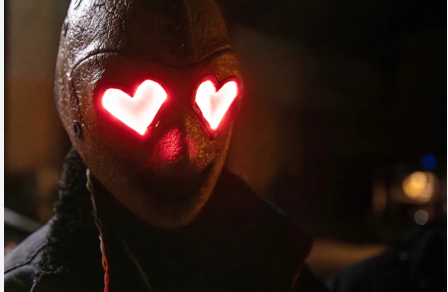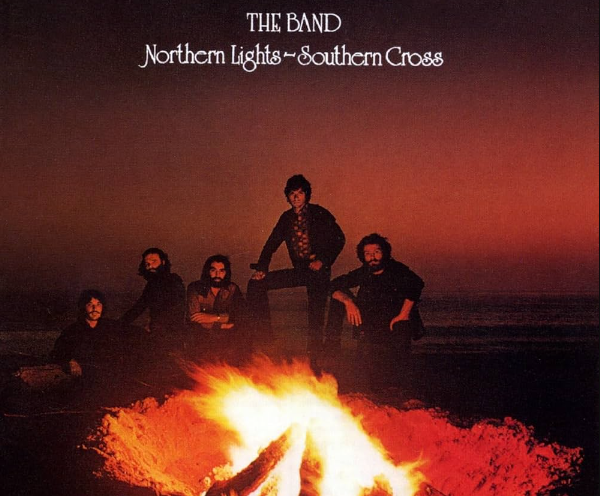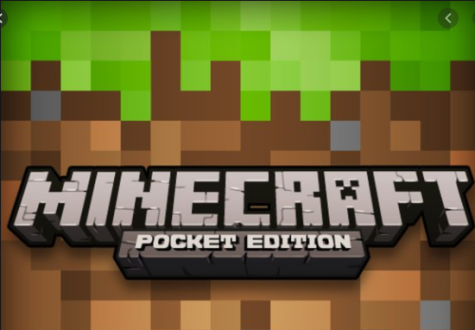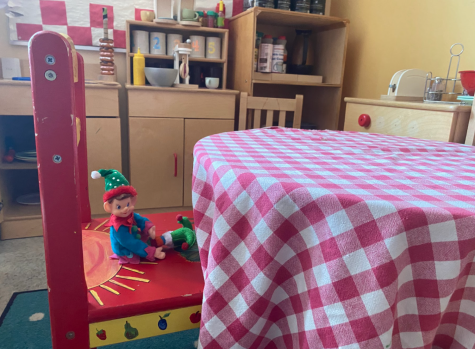Netflix Review: Squid Game takes a twisted look into society
A south Korean show, displaying the ugliness of society in a sick and twisted “game”.
Green light. Red light. That’s a phrase from our childhood pasts.
It’s a child’s game that has been revamped into internationally televised entertainment. Squid Game, Netflix’s most recent big hit, takes the world by storm.
Following the trials and tribulations of a single dad, Seong Gi-Hun (played by Lee Jung-jae), trying to stay connected with his daughter, but, because of his financial situation caused by his gambling addiction, Hun gets roped into a game called, Ddakji with a “businessman” to earn money.
When the rounds of Ddakji end, the man leaves Gi-Hun a card inviting him to another game. The money that Gi-Hun earns makes him greedy to earn more. He is not alone.

The new contest includes other players, 456 financially poor South Korean citizens, being tricked into a seemingly easy game to win money. This is their last resort to “win big.” For most of the contestants, they have creditors, bills, and relationship drama at home. The chance to win money fills them with hope.
The contestants quickly realize this isn’t any ordinary competition. The games are presented as traditional children’s games with a twist, if they fail, they die.
The season continues to follow Hun and other players as they traverse through the game, testing their morals, their thought processes, and their sacrifices.
The show is a very interesting twist on what society could become. It fits into the genres of drama, horror, and thriller. Squid Game, takes qualities from movies and media like Hunger Games and Parasite. It does this through the death game where the poor compete and the rich stay entertained. Inspiration from Parasite comes through the discussion of inequality in South Korea between the huge divide in classes in their society.
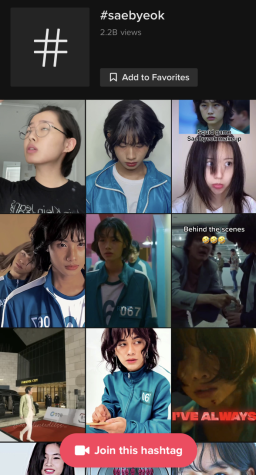
The way the directors combine these ideas made the story very captivating, through the cinematography.
The show has very memorable characters that the audience becomes invested in and hopes will succeed.
The different games also make for popularity. Dalgona, a traditional honey comb candy with an imprinted shape is used as game in the show. Players remove the imprinted shape, keeping it intact. This became another huge trend on Tiktok, with over 1.8 billion views.
The only negative in the show is the translation and voice overs. They can be distracting. Since the show is made in South Korea, other countries needed to translate and have it in their individual languages for easier understanding for non-Korean speaking people.
Specifically in the English translation of the show, the voice overs lose a lot of depth to certain characters, whereas the Korean version did have the in depth and development. I recommend that you watch the show in Korean with English subtitles.
The violence is difficult for some people to stomach. If you are able to get through the gruesome and cruel depiction of what society is, then I would recommend this show to anyone.
Other than Squid Game being a popular show, it also provides the viewer an allegory to what our society truly is.
Taking to a more extreme extent, the show critiques and highlights the flaws in our capitalist societies.
This game only exists and the “players” only exist because of the capitalist society and the structural poverty it causes.
The game is a perfect example of what the rich and powerful have over the extreme poverty some citizens face. The players are a group of desperate individuals: failure is their common denominator. The overseers don’t care who and what the victims have gone through; they only care to give people false hope to escape poverty, hence them tricking all their contestants to participate in a “game.”
A perfect display of the difference between classes that capitalism brings, are the VIP’s, a group of affluent men who attend the games to cure boredom and place bets on who they believe will be the last one standing. To the VIP’s, the players are just numbers they choose and then replace when the player dies.
The “players” of the game are put to a another level of dehumanization beyond the death game when the VIP’s come into the show.
The head of the game compares these people to the level of a simple race animal, a horse. Once they are dehumanized, the VIP’s find enjoyment, fun, and entertainment from toying with these people’s lives.
Choice is another topic that is complicated with capitalism. In the show, the players have a chance to leave the game after understanding how this first death game went, with over half of the contestants dying.
They are given the choice to leave the game as long as the majority votes to end the game.
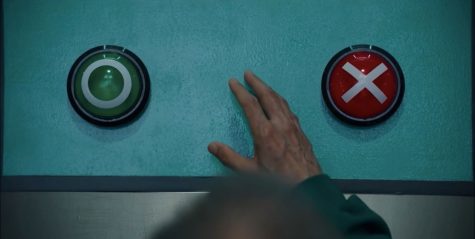
The majority votes to leave the game and everyone is sent home.
The message is that not everyone actually has a choice. The people in poverty (the contestants) are not truly given a choice, but are given an illusion of choice. The contestants are given an illusion of choice because in the real world, capitalism doesn’t really provide people in poverty an escape from being in poverty.The people are left to decide between two systems that would lead to their inevitable demise, either the sick and twisted death game, or society’s indifference.
With an astonishing 93% of people returning to the game after getting the chance to leave, it shows how these people would rather take their chances to escape capitalism poverty with a potential brutal death inside the game.
Your donation will support the student journalists of Linganore High School. Your contribution will allow us to purchase camera/recording equipment and software. We hope to raise enough money to re-start a monthly printed issue of our paper.


